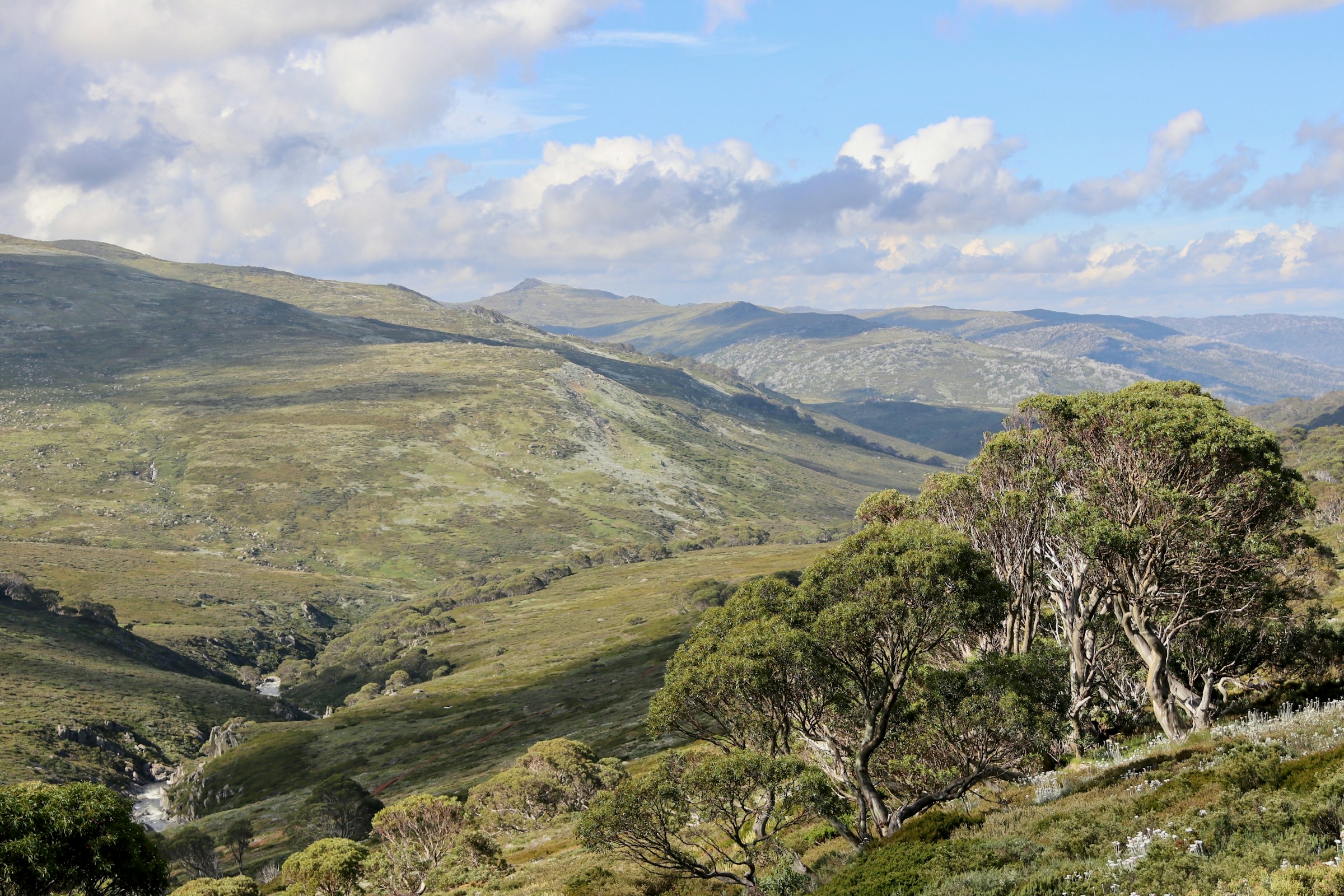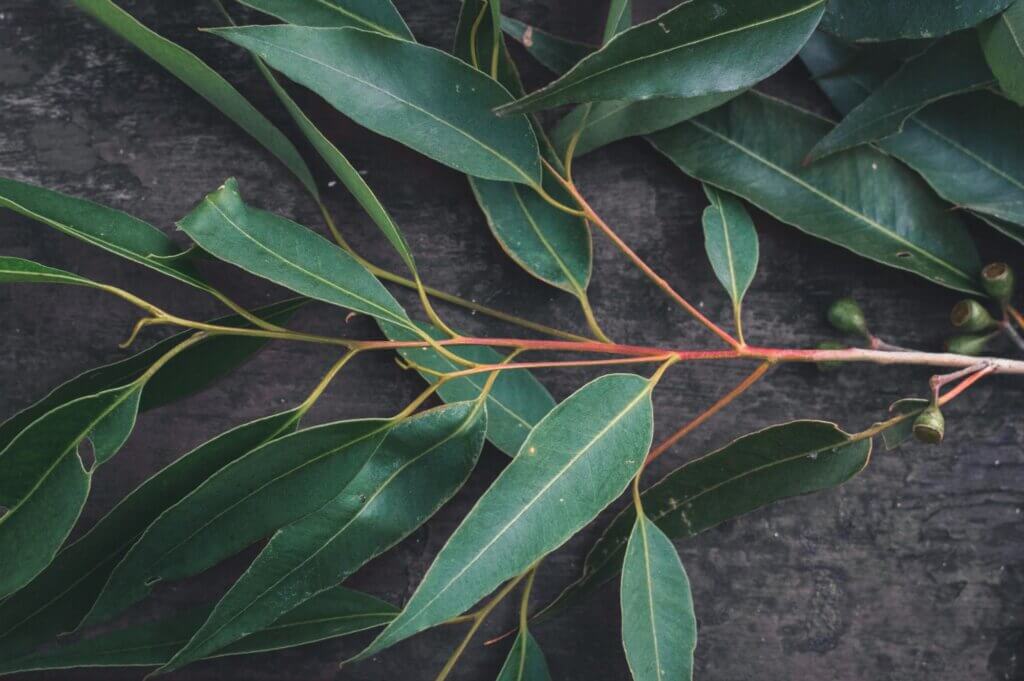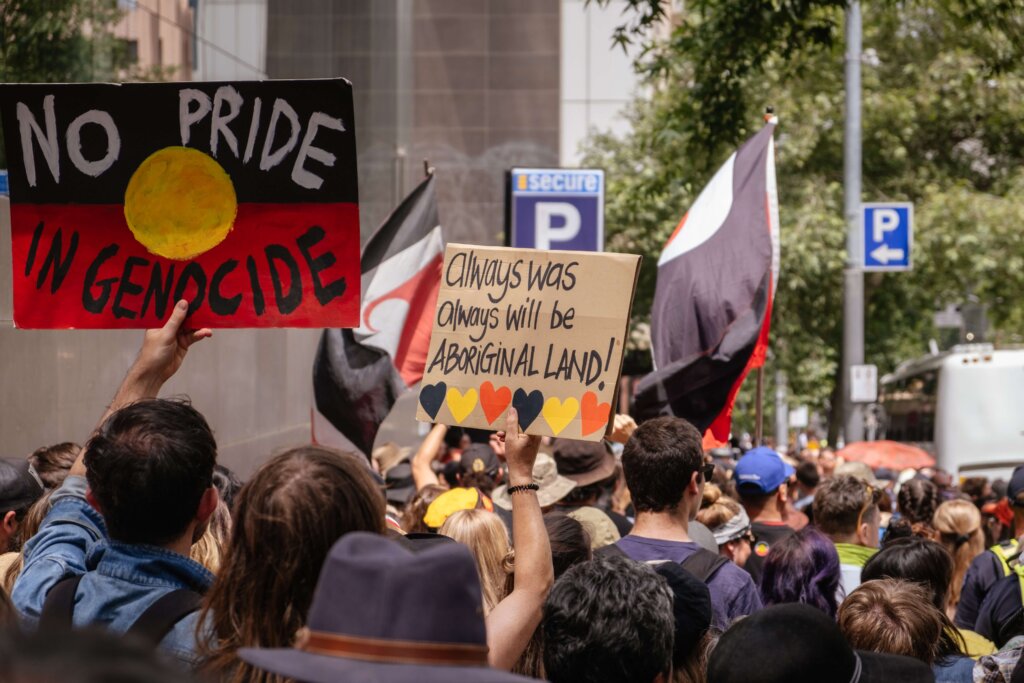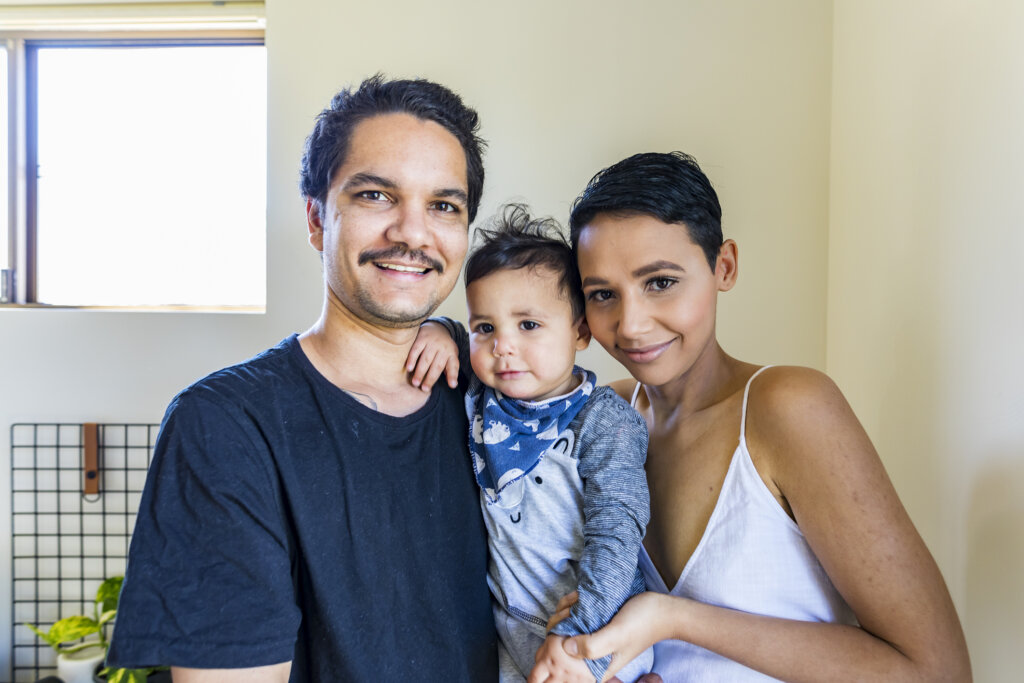First Nations people have a powerful history of strength and resistence – and they know best what their communities need to thrive and to care for country and culture.
Today, First Nations communities are at the forefront of climate and environmental harm. Coal and gas extraction are causing harm to Aboriginal land – and fuelling climate change, which threatens sacred sites with devastating sea level rise and leaves remote communities facing dangerous extreme heat.
First Nations communities have contributed least to climate and environmental destruction – yet are feeling the impacts first and worst.
But it doesn’t have to be like this.
As non-Indigenous settlers, we have a huge responsibility to listen, learn and act to help fight for First Nations justice – 365 days a year. Use these resources for First Nations justice as a starting point for action.
Listen
Learn
As an environmental justice organisation, we know that First Nations justice is inseparable from the fight to protect nature, safeguard our climate, and stand up for the communities most impacted by environmental harm.
These resources for First Nations justice feature a collection of different stories and perspectives from First Nations people across the continent. You’ll also find information about a number of First Nations campaigns and organisations we encourage you to support either financially or by taking action.
There can be no climate and environmental justice without First Nations justice.
How to be a good Indigenous ally by Yorta Yorta woman, academic, writer and public health consultant, Dr. Summer May Finlay.
Top 10 positive ways non-Indigenous Australians can engage with Indigenous Issues by Yawuru woman Shannan Dodson.
Where do you fit? Tokenistic, ally or accomplice? by Yorta Yorta woman, Dr. Summer May Finlay.
Share our Pride will give you a glimpse if how life looks from and Aboriginal and Torres Strait Islander perspective.
More Australians want to do something to help improve reconciliation but don’t know how on what reconciliation means by ABC News.
Decolonising Solidarity: Dilemmas and Directions for Supporters of Indigenous Struggles by Clare Land.
Tony Birch, Ghost River (University of Queensland Press, 2015)
Chelsea Watego, Another Day in the Colony (University of Queensland Press, 2021)
Aileen Moreton-Robinson, Talking Up to the White Woman (University of Queensland Press, 2000)
Irene Watson Aboriginal Peoples, Colonialism and International Law: Raw Law (Routledge, 2016)
Kevin Gilbert, Because a White Man’ll Never Do It (Angus and Robertson, 1973)
Sean Brennan et al, Treaty (Federation Press, 2005)
Langton et al, Settling with Indigenous People: Modern Treaty and Agreement-Making (Federation Press, 2006)
Prof Megan Davis, ‘Listening but not hearing’ (2015) Griffith Law Review
Australian Earth Laws Alliance, ‘Future Dreaming’
Richard Bell: You Can Go Now – 50 years of First Nations activism in Australia seen through the lens of contemporary Australian Aboriginal artist and provocateur Richard Bell.
In My Blood It Runs – A personal documentary and an essential portrait of Australian youth. Follow Dujuan, an inquisitive young Arrernte/Garrwa boy who speaks three languages, understands his Aboriginal culture and loves his country.
After the Apology – Four grandmothers begin a national movement to tackle the removal of children and the rising number of Indigenous children in out-of-home care after Kevin Rudd’s apology to the stolen generations in 2008.
Water is Life – A documentary about the Aboriginal communities fighting against fracking plans in the NT, learning from First Nations brothers and sisters fighting the same battles in the US.
Incarceration Nation – Australia was founded by the British with one clear purpose – to create a prison colony. We’ve continued to be one ever since. Incarceration Nation lays bare the continued systemic injustice and oppression against Aboriginal and Torres Strait Islander peoples on their own land – and their strength and resistance in the face of it.
We Don’t Need a Map – The Southern Cross is the most famous constellation in the southern hemisphere. But for Aboriginal people the meaning of this heavenly body is deeply spiritual – a totem that’s woven into the spiritual and practical lives of Aboriginal people.

Learn about the land you're on
Aboriginal and Torres Strait Islander Australia is made up of so many different and distinct groups, each with their own culture, customs, language and laws.
Keep this map of Indigenous Australia handy to know whose Country you are on and to learn more about the language, social and nation groups of Aboriginal Australia.
Being a better ally means understanding and learning about the Traditional Custodians of the land you are on or visiting.
Reach out to your local council or visit the Victorian Aboriginal Education Association (for Victoria), or the NSW Aboriginal Education Consultative Group Inc (for NSW).
Take action
At EJA we strive to learn, improve and do more to be better allies to Aboriginal and Torres Strait Islander people and communities.
Some of the work we’re currently doing:
- Working with paid First Nations consultants on using our work to support Aboriginal communities
- Cultural awareness, cultural safety and anti-racism training for all staff
- Delivering our Reconciliation Action Plan
- Choosing First Nations businesses as suppliers
- Supporting Seed through workplace giving and as a partner
- Encouraging supporters to engage with resources for First Nations justice








